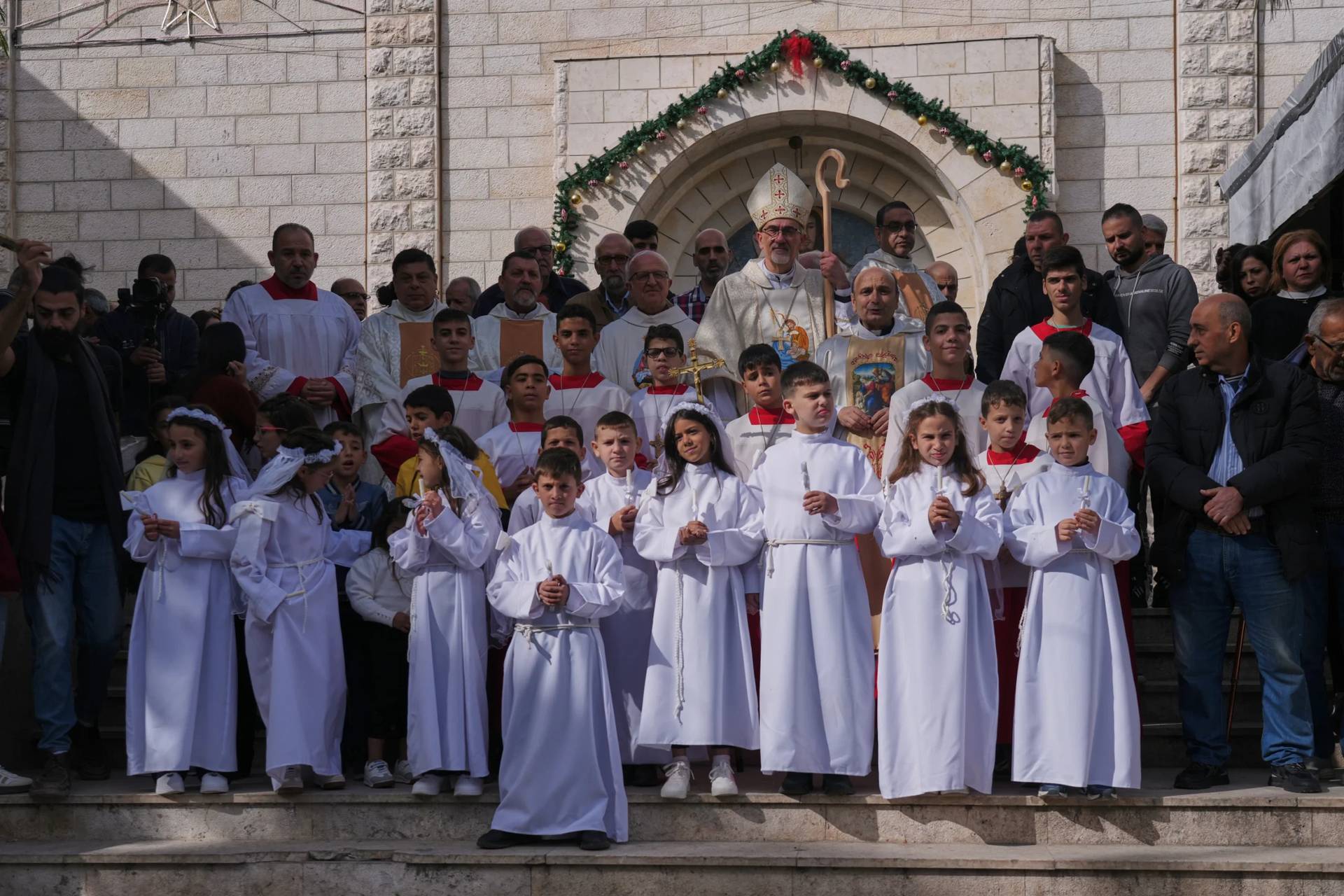NEW YORK – A federal appeals court on July 13 sided with the Archdiocese of Indianapolis in a lawsuit filed by a former guidance counselor who wasn’t retained because of her same sex marriage, as the court held that religious institutions have a constitutional right to hire staff who uphold faith teachings.
After the ruling, lawyers for the guidance counselor, Michelle Fitzgerald, reiterated their stance that her role at the school is secular in nature, and therefore she should not have lost her job.
The case, Michelle Fitzgerald v. Roncalli High School and the Archdiocese of Indianapolis, dates back to 2018, when Roncalli High School declined to renew Fitzgerald’s one-year employment agreement for the reason that her same-sex marriage was contrary to the faith.
A year later Fitzgerald filed a discrimination lawsuit against the high school and the archdiocese, which was dismissed by a district court last year. The July 13 ruling from the Seventh Circuit was on Fitzgerald’s appeal of the district court ruling. She now has 90 days to appeal to the Supreme Court.
Joseph Davis, counsel at the Becket Fund for Religious Liberty, which represented the defendants, said the federal appeals court decision reinforces the precedent that Catholic schools can ask their teachers and administrators to live in accordance with the teachings of the faith.
“Today’s ruling is common-sense: Decisions about who conveys the Catholic faith to Catholic school children are for the Church, not the government,” Davis said in a July 13 statement. “Many parents entrust their children to religious schools precisely because those schools help to pass on the faith, and this victory ensures they remain free to do so.”
Archbishop Charles Thompson of Indianapolis declined a Crux request for comment.
Rachel Laser, president and CEO of Americans United for Separation for Church and State, which is part of Fitzgerald’s legal team, argued in a July 14 statement in response to the ruling that Fitzgerald wasn’t hired to minister to students but to provide “secular guidance.”
“Shelly Fitzgerald, like most employees at religious organizations, wasn’t hired to minister to students or to preach the Catholic religion. She was hired to provide secular guidance to students seeking to get into college,” Laser said. “She should not have lost her civil rights simply because the secular work she performed was done at a religious school.”
A decision on an appeal has not yet been made. Fitzgerald’s legal team is still reviewing the recent decision and plans to discuss the available options, someone with knowledge of the situation told Crux.
The July 13 ruling from the Seventh Circuit is based on the explicit freedom of religion in the First Amendment and a legal doctrine known as the ministerial exception.
As explained by the Supreme Court in the case Hosanna-Tabor Evangelical Lutheran Church & School v. E.E.O.C., the language in the First Amendment bars employment discrimination lawsuits “when the employer is a religious group and the employee is one of the group’s ministers.”
In that case, the Supreme Court explained that “requiring a church to accept or retain an unwanted minister, or punishing a church for failing to do so, intrudes upon more than a mere employment decision,” it “interferes with the internal governance of the church, depriving the church control over the selection of those who will personify its beliefs.”
In Fitzgerald’s case, the Seventh Circuit said it was up to the school and archdiocese to prove Fitzgerald is a minister. Ultimately, it was determined that “there is no genuine dispute that Fitzgerald played a crucial role on the Administrative Council, which was responsible for at least some of Roncalli’s daily ministry, education and operations,” which is essentially what the district court found, as well.
The Seventh Circuit further explained that Fitzgerald “helped develop the criteria used to evaluate guidance counselors, which included religious components like assisting students in faith formations and attending church services,” adding that “Fitzgerald held herself out as a minister.”
Francis DeBernardo, executive director of New Ways Ministry, an organization that works to bring together the Catholic Church and LGBTQ community, told Crux in a statement that “expanding the ministerial exception to include someone who performed the duties that Ms. Fitzgerald did devalue what it means to be a minister, which is a person who does service as a personal call from God.”
“Church institutions must stop using religious liberty arguments to evade non-discrimination laws,” DeBernardo added. “When Catholic leaders hide behind religious liberty laws, they harm not only LGBTQ+ people but also the church because the overwhelming majority of Catholics in the U.S. support full equality for LGBTQ+ people.”
At the time Fitzgerald filed her lawsuit, her co-director of guidance at Roncalli who was also in a same-sex marriage, Lynn Starkey, also didn’t have her contract renewed and sued the school and archdiocese. Her lawsuit concluded last July, with the same outcome.
In her statement, Laser also commended Fitzgerald for the stance she took in filing the lawsuit.
“I also want to commend our plaintiff, Shelly Fitzgerald, for courageously speaking up on behalf of all people vulnerable to discrimination in the name of religion,” Laser said. “Shelly and brave people like her are on the front lines warning the American people about the very real threats we face from a shadowy network of religious extremists working to turn religious freedom from a shield into a sword to harm others and violate their rights.”
Follow John Lavenburg on Twitter: @johnlavenburg














